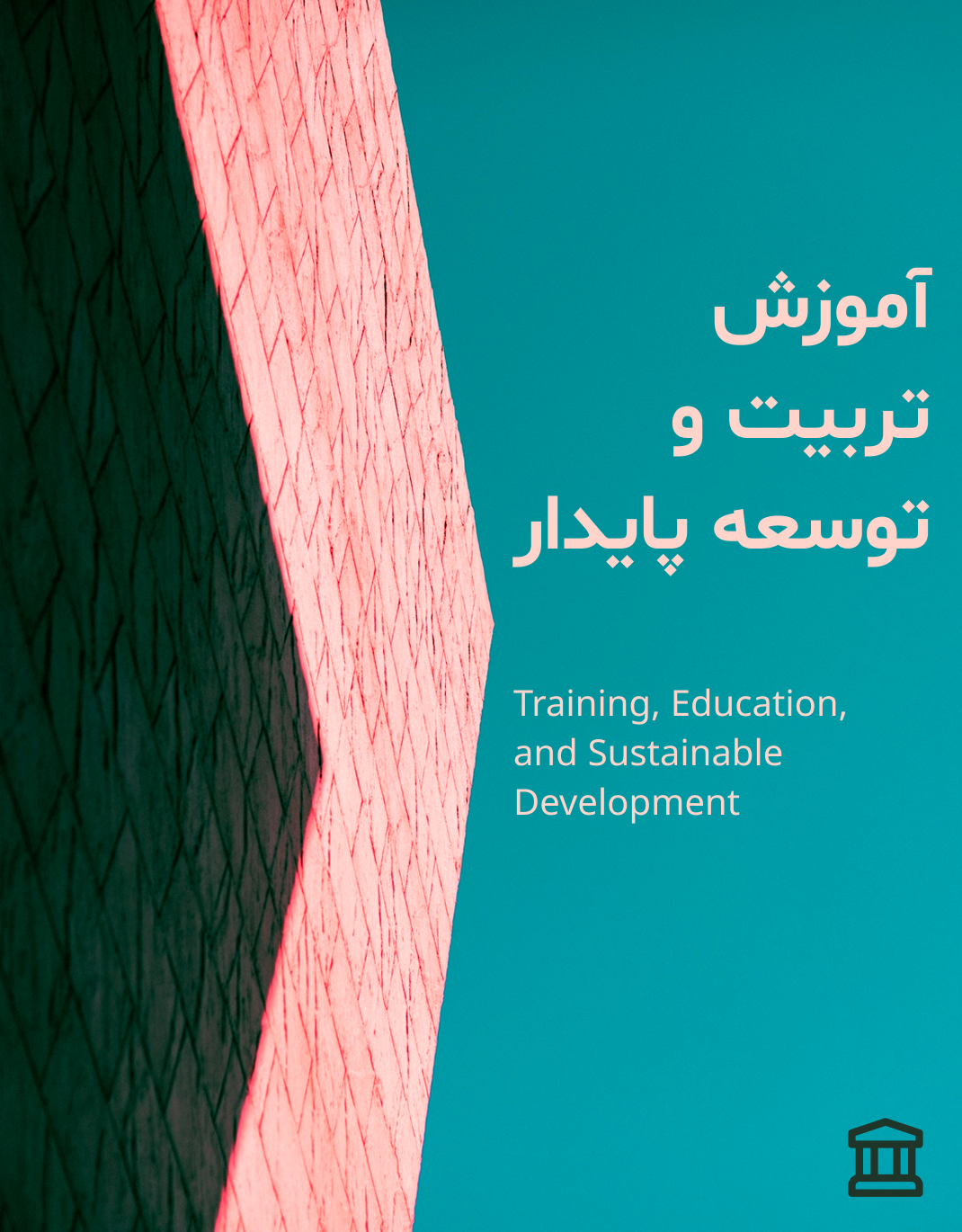بررسی رابطه الگوی توانمندسازی دانشجویان با سواد سلامت آنها
کلمات کلیدی:
توانمندسازی, سواد سلامت, دانشجویانچکیده
هدف این پژوهش تعیین رابطه الگوی توانمندسازی دانشجویان با سواد سلامت آنها بود. روش پژوهش پیمایشی مقطعی بود. جامعه آماری شامل کلیه دانشجویان دانشگاه علوم پزشکی جندی شاپور اهواز بود، حجم نمونه 270 نفر طبق فرمول کوکران انتخاب شد، شیوه نمونهگیری هدفمند بود. جهت جمعاوری دادهها از پرسشنامه محقق ساخته و پرسشنامه سنجش سواد سلامت بزرگسالان ساکن شهرهای ایران (هلیا) استفاده شد. برای تجزیه و تحلیل دادهها از آمار توصیفی (میانگین،انحراف معیار،چولگی و کشیدگی) و آمار استنباطی (آزمون معادلات ساختاری، تحلیل عاملی تاییدی) استفاده شد. نتایج حاصل از پژوهش نشان داد که بین مولفههای توانمند سازی دانشجویان با سواد سلامت آنها ارتباط مثبت و معناداری وجود دارد. (05/0 p<).
دانلودها
مراجع
Asadi, P., Farhadi, H., & Golparvar, M. (2021). Effectiveness of Psychological Empowerment Package on the Psychological Wellbeing and Rumination of the Parents of the Children with Cancer. Empowering Exceptional Children, 12(1), 84-94. https://doi.org/10.22034/ceciranj.2021.246311.1443
Azzarito, L., & Ennis, C. D. (2009). The social construction of gender in physical education: A review of the literature. Quest, 61(4), 422-445. https://doi.org/10.1080/00336297.2009.10483631
Barghi, E. (2019). Literacy, the key element of Sustainable Development. Journal of Development strategy, 14(4), 187-210. https://www.magiran.com/paper/1937266
Bartolucci, M., & Batini, F. (2020). Reading Aloud Narrative Material as a Means for the Student’s Cognitive Empowerment. Mind, Brain, and Education, 14(3), 235-242. https://doi.org/10.1111/mbe.12241
Cayaban, A. R. R., Valdez, G. F. D., Leocadio, M. L., Cruz, J. P., Tuppal, C. P., Labrague, L. J., Maniago, J., & Francis, F. (2022). Structural and psychological empowerment and its influencing factors among nursing students in Oman. Journal of Professional Nursing, 39, 76-83. https://doi.org/10.1016/j.profnurs.2022.01.003
Çiftci, N., Yıldız, M., Yildirim, gt, & Ömer. (2023). The Effect of Health Literacy and Health Empowerment on Quality of Life in the Elderly. Psychogeriatrics. https://doi.org/10.1111/psyg.12969
DaĞGÖL, G. D. (2020). Perceived Academic Motivation and Learner Empowerment Levels of EFL Students in Turkish Context. Participatory educational research, 7(3), 21-37. https://doi.org/10.17275/per.20.33.7.3
Dorfeshan, M., & Fouladchang, M. (2022). A comparison of the effect of PERMA model and psychological empowerment training program in high school students' future orientation and self-actualization. Studies in Learning & Instruction, 13(2), 24-51. http://ijwph.ir/article-1-1350-en.html
ESCO. (2023). European skills, competences, qualifications and occupations: Classification framework. European Commission. https://ec.europa.eu/esco/portal/home
Gebregergis, W. T., & Csukonyi, C. (2024). Relating Learner Empowerment to Student Engagement Through Psychological Capital in College Students. Oxipo, 6(2), 21-41. https://doi.org/10.35405/oxipo.2024.2.21
Gere, B., & Salimi, N. (2025). Mental Health Literacy, Stigma, and Help-Seeking Behavior Among Black Male College Students in Historically Black Universities. American Journal of Men S Health, 19(1). https://doi.org/10.1177/15579883251318214
Ghosh, N., Sengupta, S., Biswas, J., & Chowdhury, A. (2020). Self-Empowerment Boosts Confidence: Assessing Experience of Martial Arts Workshop Among Undergraduate Students in North Bengal Medical College. Journal of Comprehensive Health, 8(1), 53-55. https://doi.org/10.53553/jch.v08i01.010
Haseldoust Karati, F., Ramadanpour, M., Moniri Torqi, M., & Alishteri, M. (2024). The Impact of Professional Development of Teachers in the Field of Educational Innovation on the Empowerment of Student Creativity. First International Conference on Transformative Ideas in Cultural and Educational Studies in Education with Emphasis on Action Research, Lesson Study, and Narrative Research in the Third Millennium, https://link.springer.com
Hashish, E. A. A., & Alnajjar, H. (2024). Digital Proficiency: Assessing Knowledge, Attitudes, and Skills in Digital Transformation, Health Literacy, and Artificial Intelligence Among University Nursing Students. BMC Medical Education, 24(1). https://doi.org/10.1186/s12909-024-05482-3
Jabarzadeh, C. M., Bayrami, M., Nakhostin, G. A., & Hashemi, T. (2022). The Effectiveness of Cognitive Empowerment on Executive Functions and Cognitive and Emotional Inhibition of Students with Learning Disabilities.
Koutra, K., Pantelaiou, V., & Mavroeides, G. (2024). Breaking Barriers: Unraveling the Connection Between Mental Health Literacy, Attitudes Towards Mental Illness, and Self-Stigma of Psychological Help-Seeking in University Students. Psychology International, 6(2), 590-602. https://doi.org/10.3390/psycholint6020035
Krippendorff, K. (2018). Content analysis: An introduction to its methodology. SAGE Publications. https://doi.org/10.4135/9781071878781
Malekzadeh, S., Hejazi, E., & Kiamesh, A. (2021). Designing and developing an empowerment training package (self-determination approach) and its effectiveness on the mathematical performance and beliefs of male and female students (with low performance in mathematics). Journal of Psychological Sciences, 20(103). https://doi.org/10.52547/JPS.20.103.1095
Mehrabian, B., Dokaneeifard, F., & Fattahi Andabil, A. (2022). Offering a Psychological Empowerment Package for Parents and Evaluating its Effectiveness on Psychological Distress in Students with Ineffective Parent-Child Interaction. Journal of Applied Psychological Research, 13(2), 229-247. https://doi.org/10.22059/japr.2022.327250.643913
Rahbar Karbasdehi, F., Abolghasemi, A., & Rahbar Karbasdehi, E. (2020). The Effectiveness of Schema Therapy on Psychological Resilience and Social Empowerment in Students with Depression Symptoms. Journal of Psychological Studies, 15(4), 73-90. https://doi.org/10.22051/psy.2019.23724.1808
Rahnama, F., Beyazi, M., Rajaei, A., & Khoeinejad, G. (2020). Comparison of the effect of neuropsychological therapy, rhythmic movements and cognitive empowerment on the executive functions of students with specific learning disorder. ijpn, 8(1), 82-93. http://ijpn.ir/browse.php?a_id=1515&sid=1&slc_lang=fa&ftxt=0
Saeidi, A. A., & Bajelan, A. (2022). Analysis of policy barriers in the empowerment plan for women heads of households. Women's strategic studies, 24(95), 147-174. https://doi.org/10.22095/jwss.2022.315936.2857
Sheikhul-Islami, A., & Nowrozi Firouz, A. (2023). The effect of psycho-social empowerment on the tolerance of students with readiness for addiction. Scientific Quarterly of Addiction Research, 17(67), 7-24. https://doi.org/10.52547/etiadpajohi.17.67.7
Soorgi, S., Godarzi, Y., Shabib Asl, N., & Ghorbani, M. (2021). The Effectiveness of Executive Function Training on Students' Academic Vitality and Academic Performance. umsha-psj, 19(5), 43-50. https://doi.org/10.61186/psj.19.5.43
Vahedi Koujaneq, H., Eghbali, A., Rezaei Malajagh, R., & Bakhshi, S. (2021). The Effectiveness of Emotion Regulation Training in Improving Social Skills in Elementary Students with Oppositional Defiant Disorder. Empowerment of Exceptional Children, 12(3), 42-52. https://www.sid.ir/paper/954327/fa
Wilde, N., Foxcroft, D., & Davies, E. (2024). Exploring Mental Health Literacy and Help-Seeking Behaviours at University - A Survey of UK Undergraduate Students Considering the COM-B Model. https://doi.org/10.31219/osf.io/pktc3
Yang, X., Hu, J., Zhang, B., Ding, H., Hu, D., & Li, H. (2024). The Relationship Between Mental Health Literacy and Professional Psychological Help-Seeking Behavior Among Chinese College Students: Mediating Roles of Perceived Social Support and Psychological Help-Seeking Stigma. Frontiers in psychology, 15. https://doi.org/10.3389/fpsyg.2024.1356435
دانلود
چاپ شده
ارسال
بازنگری
پذیرش
شماره
نوع مقاله
مجوز
حق نشر 2025 مریم هواخور, زینب گلزاری, قدسی احقر (نویسنده)

این پروژه تحت مجوز بین المللی Creative Commons Attribution-NonCommercial 4.0 می باشد.


